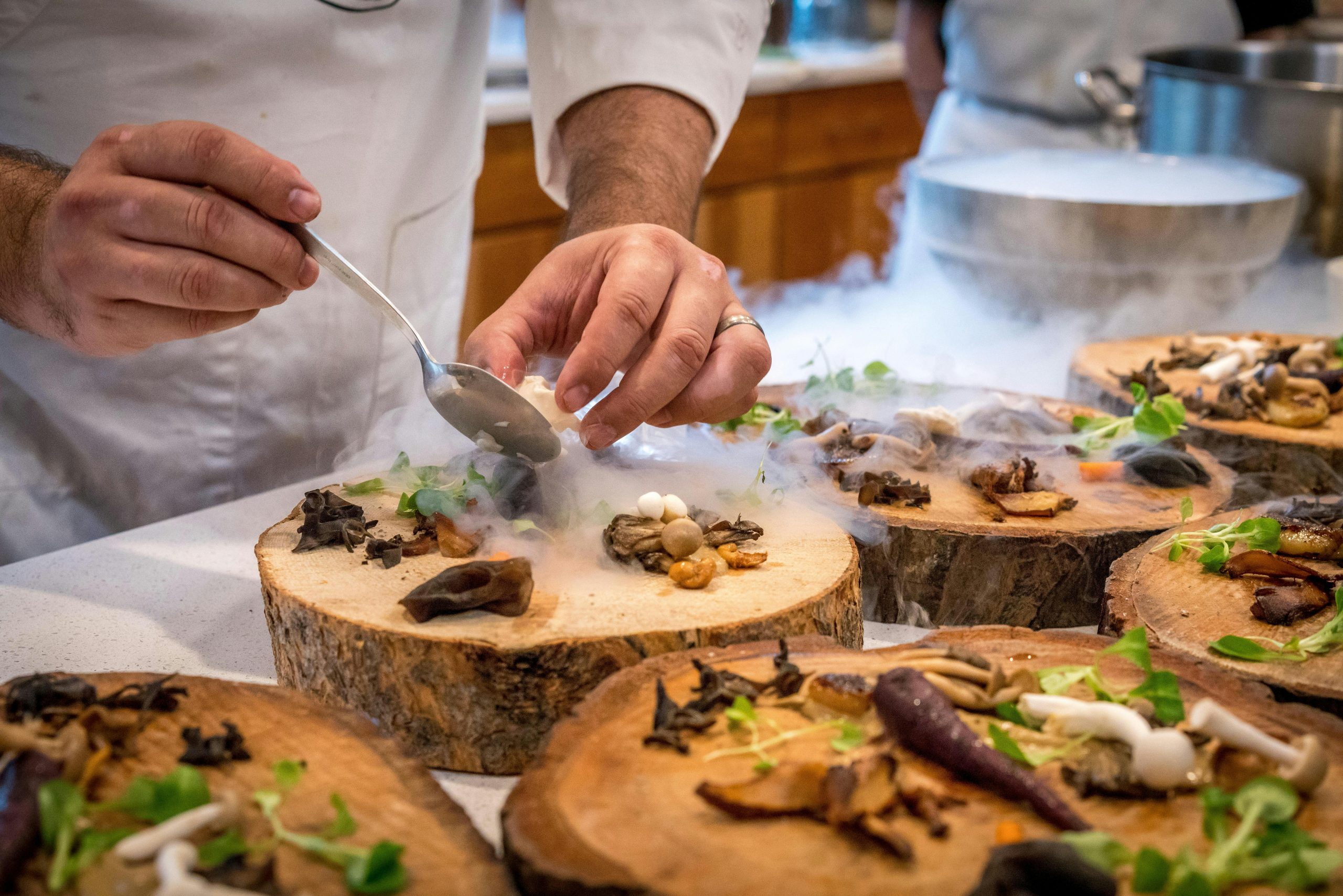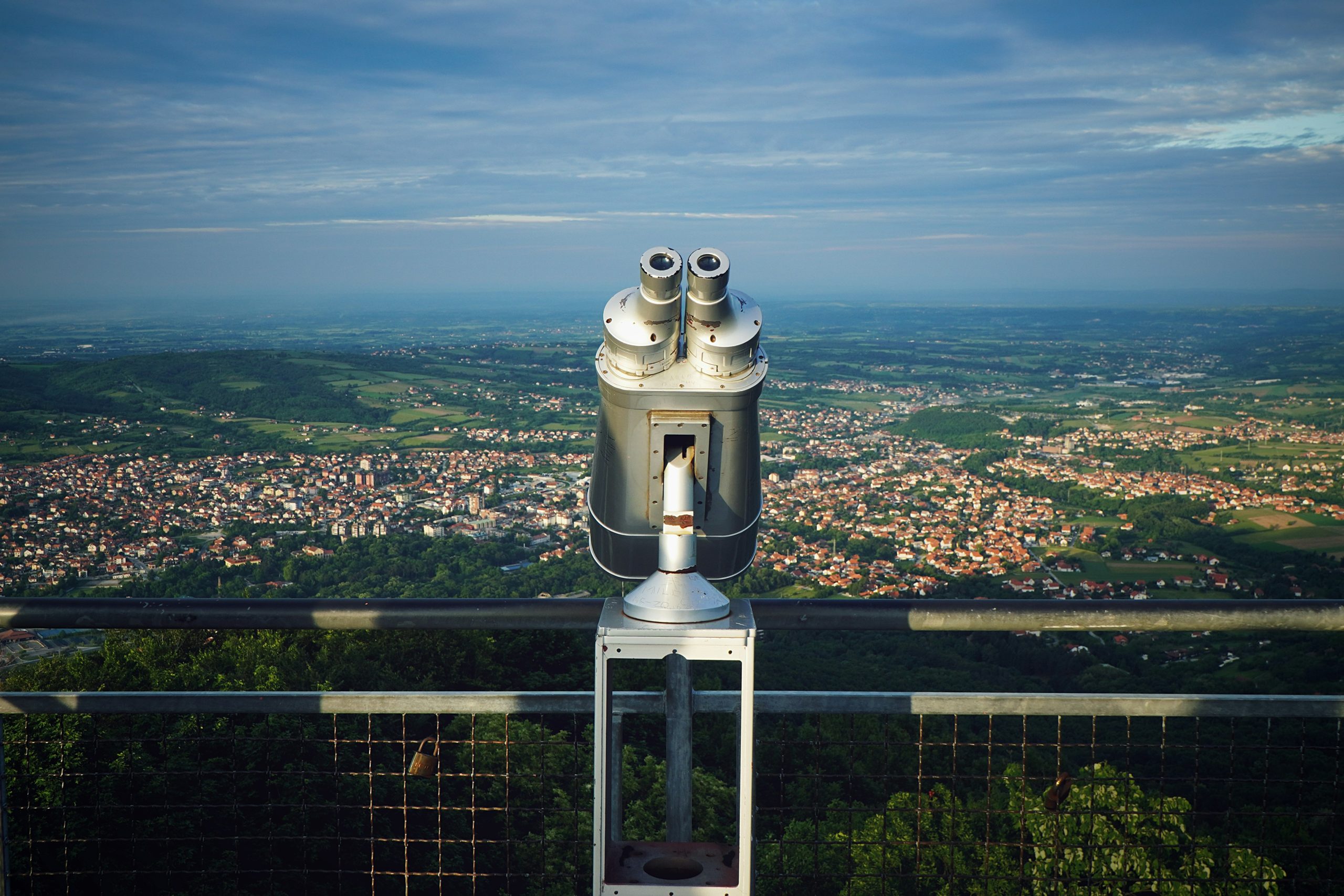Luxury Gastronomy Trends for 2025: Sustainability, Innovation and Unique Experiences
High-end cuisine constantly evolves, and 2025 will consolidate key trends combining sustainability, innovation, and multisensory experiences. Plant-based cuisine is no longer just an alternative, but a standard in fine dining. Renowned chefs are innovating with plant and laboratory proteins, creating sophisticated dishes such as beet tartar with seaweed caviar or mushroom ravioli with black truffle, responding to the growing demand for healthy and sustainable options. SUSTAINABILITY: RESPONSIBLE LUXURY Sustainability is positioned as an essential value in luxury restaurants committed to zero-kilometer cuisine, regenerative agriculture, and reducing food waste. An example of this is Noma, in Copenhagen, which maximizes the use of local ingredients with seasonal menus and fermentation techniques. Technology is also transforming gastronomy, with artificial intelligence, 3D printing, and nanogastronomy to personalize experiences. On the other hand, Sublimotion, in Ibiza, illustrates this revolution with immersive dinners that combine technology and gastronomy in a single show. MULTISENSORIAL EXPERIENCES: GASTRONOMY AS ART Multisensory experiences will be a trend, where ambiance, music, and aromas complement the dishes. Dinner by Heston Blumenthal, in London, offers dinners where food is part of a sensory narrative. Fusion cuisine, meanwhile, continues to grow with the revaluation of ancestral techniques and the incorporation of global flavors. Pujol, in Mexico City, is
Exclusive hotels opening doors this year 2025
Luxury hospitality continues to evolve, adapting to new traveler expectations and global trends. In 2025, we expect openings that, in addition to standing out for their exclusivity and sophisticated design, also stand out for their commitment to sustainability, integration with local culture and the implementation of cutting-edge technology to enhance the guest experience. For people who seek luxurious destinations to visit, here is a list of the most promising beachfront resorts, some of the highest mountain refuges, and innovative spaces in the middle of the agitated metropolis. FOUR SEASONS RESORT MYKONOS, GREECE Located on the iconic island of Mykonos, this resort combines traditional Greek island charm with contemporary luxury. Styled in a Cycladic décor, filled with whitewashed courtyards and winding pathways, it offers guests rooms with direct views of the Aegean Sea. At this sustainable resort it will be possible for travelers to enjoy private beaches, an infinity pool and cuisine that fuses local and international flavors. WALDORF ASTORIA SAN MIGUEL DE ALLENDE, MEXICO In the heart of a city declared a World Heritage Site by UNESCO, this hotel promises to be a haven of deluxe and culture. Hilton Worldwide's luxury chain will feature wellness spaces and a state-of-the-art spa, converging
Capitalizing influence: entrepreneurs transforming their success into solutions for global challenges
Success in the business world can be measured not only in terms of growth and profitability but also in terms of the positive impact generated for society. Many entrepreneurs have demonstrated that entrepreneurship and philanthropy can go hand in hand, leveraging resources, knowledge, and influence to advance causes that benefit millions of people. A RESPONSIBILITY OF BUSINESS LEADERS In the corporate environment, successful entrepreneurs have strong capabilities for innovation, attracting investment, and mobilizing resources. Consequently, entrepreneurs have a privileged opportunity to address issues and generate significant changes beyond their businesses. Therefore, the true transcendence of an entrepreneur lies in their financial success and the legacy that he or she leaves behind through their impact on society. TRANSFORMING BUSINESS SUCCESS INTO SOCIAL IMPACT Leaders such as Oprah Winfrey, Michael Bloomberg, and Jeff Bezos have taken philanthropy to another level, using their influence and wealth to drive high-impact initiatives. Oprah Winfrey: Beyond her media career, Oprah has built a business empire that she has put at the service of philanthropy. Through the Oprah Winfrey Charitable Foundation, she has supported initiatives in education, humanitarian aid to victims of disasters, and women's and children's empowerment, proving that business success can be a means to transform lives. Michael Bloomberg: The
Global Trends on the Cover of The Economist 2025
Before delving into this topic, which I must admit excites me, I cannot help but mention that The Economist is a media outlet of Scottish origin, founded over 100 years ago (1843). Over time, like any other business, it has adapted and evolved in response to emerging trends. Today, it features dedicated sections on key countries like the United States and China and covers a wide range of topics, including technology, geopolitics, finance, and economics. It is renowned for its objectivity, editorial independence, and timeliness. Additionally, its distinctive covers also set it apart. Each year, The Economist releases its annual cover, which typically highlights global trends and topics of interest. These covers often focus on areas such as economics, politics, technology, and science, among other timely and relevant subjects. Undoubtedly, a significant part of the publication’s prestige stems from the accuracy of its predictions, which have garnered worldwide influence. Leaders, students, professionals, and others eagerly anticipate these covers, as they often highlight critical issues that set the tone for the year ahead. A notable example is the 2020 cover titled "The Next Catastrophe (and How to Survive It)", which was linked to the COVID-19 pandemic and its global impacts. These cover pages
Spain as an Invaluable Enotourism Destination
Among Spain's many tourist attractions, its vineyards stand out as true gems. This was recently reaffirmed with the recognition of the Marqués de Riscal winery, awarded as the World’s Best Vineyard 2024. Enotourism in Spain has seen remarkable growth in recent years, leaving a significant mark on both its economy and culture. According to a report by SEGITTUR, Spain is home to the largest vineyard in the world, ranks as the third-largest global wine producer, and leads as the top exporter by volume. This sector plays a crucial role in employment and cultural identity, accounting for 2.2% of the national Gross Value Added (GVA) and generating approximately 425,000 jobs. Spain has successfully capitalized on these trends, drawing wine lovers and tasting enthusiasts alike. Initiatives such as Wine Routes and specialized fairs have been instrumental in diversifying and promoting enotourism, attracting millions of visitors annually.
Coworking: The Booming Market Every Entrepreneur Should Take Advantage
In recent years, we’ve witnessed a significant transformation in work models, particularly remote and hybrid work, which gained prominence between 2019 and 2020. This shift was largely a "forced" solution in response to the Covid-19 pandemic, as many businesses adopted these methods to continue operations, even in industries where the nature of work made remote operations challenging, such as certain areas in the financial sector that require stringent security measures. What began as a temporary measure has evolved into a permanent trend. In fact, hybrid and remote work have experienced growth of over +100% compared to previous years. According to a Forbes report, the coworking industry is projected to see impressive growth of up to +224% by the end of 2024. Notably, coworking spaces are not only used by digital nomads but are also becoming a cost-effective solution for companies seeking to optimize operational expenses with more flexible models. In 2024, several countries stand out for their remarkable growth in the coworking sector. The United States recorded a 2% increase during the second quarter of the year, while Spain showed an impressive 70% growth compared to 2023. Meanwhile, Mexico reported a 30% increase. These data underscore a clear opportunity: coworking is not just
Millionaire Opportunities: How Great Entrepreneurs Turned Needs into Profitable Businesses
It’s no secret that great businesses arise from needs reflected in our daily lives. In many cases, what starts as a "challenge" turns into a business opportunity. A few months ago, we discussed green businesses, which were born from environmental issues, affecting specific sectors, creating economic challenges, such as the case of sargassum and its impact on tourism. Today, I want to share the story of a young entrepreneur, yes, a young one, just 11 years old. Her name is Lily Born, and a few years ago, she developed a special cup known as the Kangaroo Cup, designed for people with Alzheimer’s. Before becoming a business proposal, her idea came from a personal need: her grandfather, who suffers from Parkinson’s disease and had difficulty doing simple things like drinking water. What started as a solution for her grandfather turned into an invention that has improved the lives of thousands of people. Lily Born’s case is a clear example of innovation, active listening, and observing current needs. Sometimes, we think innovation lies in something completely new, when, in reality, many times opportunities are in needs we have right in front of us that, for years, we haven’t noticed or used as a base
Where is Tourism Leading? Tourist Trends for 2025
With only a few days left to close the year, I take this opportunity to reflect on the trends in key sectors with a global economic impact, such as tourism. In this article, I invite you to analyze the aspects that will endure and the trends that will define tourism in 2025. In Europe, according to data provided by Zurab Pololikashvili, Secretary-General of UN Tourism, regions like Europe, Africa, and the Middle East experienced significant growth, reaching remarkable figures after the pandemic. This trend will continue, and in Latin America and the Caribbean, although at a slower pace, a recovery is also being recorded. In the case of the Caribbean, growth is expected to rise due to the increased demand for cruises. In fact, as cited by the UN, 2024 was a positive year for the tourism industry, with a total of 1.1 billion tourists traveling to international destinations, representing a 98% recovery to pre-pandemic levels. These data are crucial for analyzing trends because, as I have pointed out in other articles, travelers' habits and consumer decisions are shaped by emerging factors. A few months ago, we discussed sustainable tourism and saw how this factor has become essential when choosing a destination.
From Plate to Passport: The Most Exclusive Culinary Experiences of 2024
Luxury gastronomic tourism is emerging in 2024 as a standout trend, transforming the way travelers experience the world. In a setting where more people are seeking authentic and exclusive experiences, gastronomy becomes the ideal gateway to connect deeply with local culture. For those who value details, luxury tourism offers much more than exceptional dishes; it’s a journey through flavors, stories, and traditions. In iconic destinations like France, Italy, and Japan, dinners at Michelin-starred restaurants are more than a meal: they are carefully orchestrated events that allow visitors to experience the talent and creativity of renowned chefs. This level of exclusivity, where each dish tells a story, is a form of luxury that especially appeals to the curious traveler. Additionally, cooking classes and wine tours provide an opportunity to experience gastronomy in a hands-on and personalized way. In my opinion, this combination of haute cuisine with interactive activities is ideal for those who wish to explore a place with all their senses. Visits to wineries in regions like La Rioja or Napa Valley allow guests to appreciate the art of winemaking, while sustainable gastronomic experiences reflect an increasingly important ethical and environmental commitment in the industry. Luxury gastronomic tourism, with its focus on authenticity
Trends in Sustainable Tourism Investments 2024
Sustainability has evolved becoming a strategic key in tourism. In 2024, investments in sustainable tourism are focused on promoting low-impact environmental experiences that generate value for local communities. As an observer of this sector, it’s exciting to see how these investments not only address current demands but also envision a tourism model that balances economic growth with environmental respect. The demand for authentic and wellness-focused experiences is becoming increasingly relevant. Investors are betting on wellness retreats, nature-based activities, and cultural experiences. This approach not only enriches tourism but also enables a deeper connection with each destination’s identity, offering something unique and environmentally respectful. The shift toward renewable energy in tourism infrastructure is booming, promoting destinations that minimize their carbon footprint. This commitment to sustainability is key, positioning the industry as a leader compared to others. By reducing resource consumption, destinations become more attractive and aligned with the values of today’s travelers. These implementations not only benefit the environment, but also support the local economy throughout the year. It is certainly an example of how companies can adapt to reduce their impact without losing profitability.










